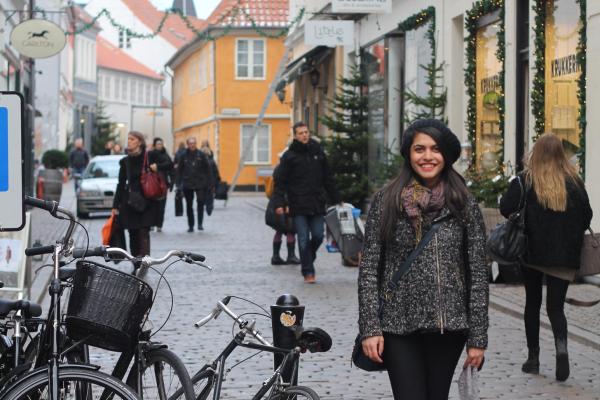"Be a tourist in your own city!"
That’s what they say. But what does this phrase even mean?
Is it paying for overpriced meals in the expensive pockets of your hometown? Is it staying in accommodation with other people travelling? Or is it a mindset—a commandment—to see your own city with the same rose-coloured glasses as others?
I like to think it's the latter. But it’s hard to be a tourist when your hometown carries the weight of the monotony of everyday life. You simply don’t have the energy to view places with fresh eyes. Sometimes, you need to change environments.
Even still, the word tourist carries with it a certain consumerism, which I would like to pick a fight with. Tourist activities are an accessible entry point, but often they are unsustainable, expensive and take advantage of people's limited knowledge of an area.
Adventure—rather than tourism—guides us on a better path. Adventure in its purest form is heading towards the unknown. In this unknown, we find new spaces to breathe and find inspiration.
Best of all, this rule can be applied to all walks of life. Finding new workplaces, exercise spots, institutions, coffee stops, cities, towns and social circles—these are all forms of adventure. It's not just limited to paragliding off a cliff.
Adventures while abroad
While studying in my new home in Liverpool, adventure has been my solace against the creeping in of the mundane. Only four weeks in and certain realities—like course work, money and location—had reared their heads. A trip to Iceland helped me appreciate the relative warmth of Liverpool and piqued my interest in learning about Nordic lifestyles.
Granted, this is a privileged position. Being able to drop extra change on a weekend trip is something I'm lucky to do, even when budgeting hard. But there is always another avenue to venture into the unknown.
Adventure is not just limited to paragliding off a cliff. Finding a new exercise or coffee stop is also a form of adventure.
A two-hour bike ride from my home in Old Swan to Warrington was one of these escapades. There's nothing particularly special about Warrington, bar the promise of three-pound doubles at the local Wetherspoons. But the journey was pleasant, and I expanded my knowledge of what life is like in the North of England.
A similar logic followed me on a seven-hour bike ride between Edinburgh and Glasgow. I could have caught the train, but the ride was filled with more unknowns and, subsequently, more adventure.
On these journeys, there isn’t immediate enlightenment. Rather, there are lots of times when one asks, “Why didn’t I just take the train?” as the gears fall off the bike. But the feeling of accomplishment riding through Glasgow at the end was life-sustaining stuff.
It's science
How often do you try something new, despite the anxiety, and think, "I should do that more often?" That feeling is the afterglow of an adventure.
Adventure is a great way to reset the lizard brain we are all programmed with. Unfortunately, we aren’t designed to be happy and content with the status quo. There is no biological basis for this. If we felt content, we wouldn't progress. Hence, at some point, we are all bound to feel fed up with any environment we are in.
Countless studies have proven that those who participate in adventure activities report lower rates of depression, stress, and anxiety. Better still, a study of mental wellbeing found those who had a history of adventure activities fared better during the recent COVID pandemic, as skills of self-reliance, resilience and stress management previously learned held them in good stead.
This is why it’s important to continue to choose moments of adventure and discomfort and to explore the unknown. There is a biological basis for this.
Adventure is empowering
People have strong reactions to stories of adventure. Statues are built in honour of famous explorers. These stories are inspiring.
When you tell someone you found a new coffee spot because you decided to branch out instead of repeating your behaviour, there is a sense of satisfaction for both parties.
Even if your adventure isn't that noteworthy to others, knowing in your mind that you are capable of expanding your world provides freedom.
Start, anywhere
It's up to you to choose how to implement adventure. But starting small and upscaling can help you begin. Try catching a train and getting a coffee a few suburbs over. Or walk somewhere instead of driving. Again, this won't be immediately enlightening, but I have no doubt you will learn something new and feel better.
No matter where you are in the world, don't forget to choose adventure. Even if you're abroad and trying to settle in, don't let the nine-to-five grind drag you too far in. It's always important to have consistent support networks, but don't forget that the world is a big place and there's always a new way to experience the world.
Add this article to your reading list




